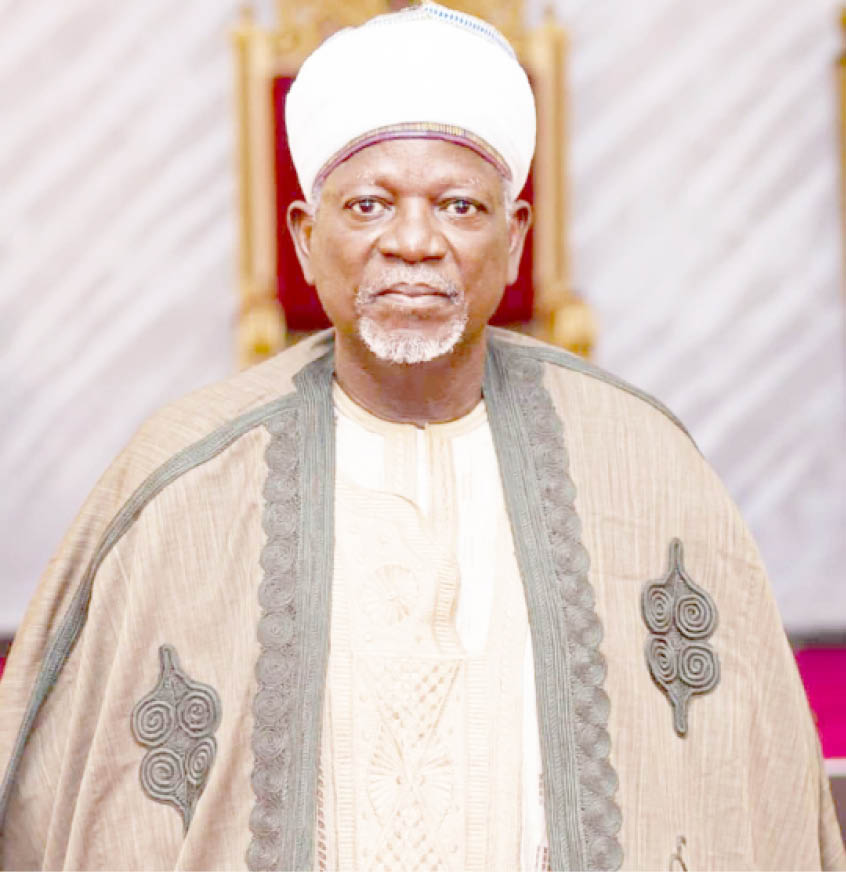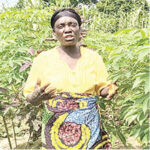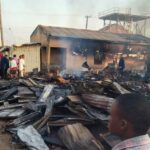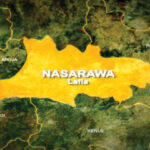His Royal Highness, Pharmacist Luka Panya Baba, is the Esu Karu of New Karu in Nasarawa State. In this interview with Daily Trust to commemorate his 20 years on the throne, which is being celebrated today, Panya said his reign has been impactful and impressive.
Twenty years on the throne, how has the journey been?
The journey has been bittersweet, but more on the sweet side because I find it a thing of delight to be of service to my community as the Esu Karu. It comes with a lot of responsibilities. When I was selected as the Esu Karu, I knew that it was not going to be an easy task. I knew because in a community, you have people with various backgrounds, different temperaments, and different perspectives on issues and so to be able to get people to think along with you, and see the future with you, would not be an easy task.
But I thank God for the last twenty years that I have been on the throne, my people have been reasoning along with me, they have been sharing the visions that I have for the advancement and development of the Karu Kingdom and that is what we have been doing. Twenty years have been impressive and impactful.
When you came into office twenty years ago, what was your vision for the people of Karu?
One is to consolidate the peaceful coexistence of the people within the community and to also see how we can improve the social and economic wellbeing of the people. Once we are able to sustain peace in the community and create a platform and avenue for people to enhance their economic positions, then we will have put them on the pathway to development and also community development.
What is the relationship between your kingdom and the new crop of persons that come into your chiefdom on a daily basis?
I want to say with confidence that Karu Local Government Area is the most populated local government area in Nasarawa State and I believe the local government have the greater mix of persons from all works of life, from across the country and beyond. What we have tried to do is that, for me as a principal, anyone that God has destined to be a resident in Karu, has a stake in all that happens here. I believe that if they do things that will consume us, they will also be consumed, if they do things that will bring about growth and development, they will be impacted.
For me as a leader, what I have tried to do is to ensure that all residents of Karu, whether originally from here or not, I see them as one, as part of us. You also have a stake in whatever happens within the community. We have a system where we carry along all tribes, and religions in all that we do. We are one family. We were able to achieve that because each tribe in Karu here has a representative and they work with us in the palace.
Any programme we are doing, any plan that we have or anything that we are doing for the community, they are represented and they pass the message to their members. Whatever we are doing, the entire tribes here are carried along.
What would you like to be remembered for as the Esu Karu?
I want to be remembered as someone who dedicated himself to the peaceful coexistence of the people, bringing the heads of the communities together without discrimination on the basis of religion or tribe.
I want to be remembered as someone who encouraged my community to be self sustainable. You don’t wait for the government to do everything for you. I have tried to instil in my people the culture of hard work and self realisation. People should be able to do things to improve their economic and social wellbeing.
Also, I would like to be remembered as someone who has preserved the culture and tradition of the people of Karu. We are currently building the Gbagyi Museum. The Gbagi people are the most predominant citizens of the Chiefdom. The museum is going to have a hall and offices. There will be a place for artefacts of the people within the Chiefdom.
We are also going to have a library and a research centre where documents pertaining to the life of the people of Gbagyi will be kept there. We want to showcase and preserve the culture of the Gbagyi people.
Has there been any particular challenge that you have faced in the past twenty years in the course of serving your people?
Frankly speaking, I would not say I have gone through any difficult situations with my people and that is probably because I operate an open door policy. I don’t restrict my people from coming to see me. They see me in the house, in the palace and most times, I do not insist that you must book an appointment before coming to see me. Anytime I am in the palace, you can just walk in and see me. Since they all have access to me to express their feelings and grievances, I have not been having any challenges at all.
The only serious challenge I can remember is with land grabbers. We had a very serious situation with them. I remember it took a lot of pressure from myself on the former governor of the state, Tanko Almakura and the collaboration of security agencies because land grabbing was becoming a serious challenge and the government needed to do something about it.
After writing to the governor, he set up a task force to look into the matter. The idea was to identify those who are into land grabbing and what steps the government can take to mitigate the issue.
I was a member of the task force, the state Commissioner of Justice was the chairman, the Commissioner of Lands was a member, and the Commissioner of Police and other powerful individuals were members.
Our sittings were in Karu Local Government Area here, we sat between three weeks and a month, we were able to identify some of the causes and we submitted a comprehensive report to the government, with recommendations of what needed to be done.
Some of the highlights of the recommendations were the prosecution of those who have been found culpable or have been indicted on the issue. All illegal structures on lands that were not their own, were to be demolished.
We had also recommended two committees, a technical committee to begin the marking of structures for demolition on government and individual lands, which they have taken illegally.
The second committee was expected to work with the judiciary to see to the prosecution of the culprits. Unfortunately, no action was taken on the matter. We have related the situation to the current governor and we believe he is going to do something about it.
Except for that and a few cases of Kidnappings here and there, not too many, because our youths and the vigilantes have stood up against criminals and for quite some time we have not heard of issues of kidnappings again within Karu Chiefdom.
Coincidentally, Karu is one of the most peaceful parts of Nasarawa State today. This is because of the way we move as a family. Our people are constantly being sensitised to be vigilant and to report any suspicious movements.
What is your message to your people?
My message is for them to sustain the peace that we are enjoying in Karu. I am sure if they ask those who are residents in areas that are experiencing conflicts, they will tell you how difficult it is to reside in such places. We have IDPs camps in Karu here, and people affected by the crisis from Chibok and other places. We have four camps, so you can see that there is a lot of need to improve and upgrade some of the facilities that we have on ground.
What is your vision for Karu in the next twenty years?
I am looking at total economic liberation of our people; a situation where we will operate like an independent community in terms of economic achievements. Government funds are dwindling by the day and if we want to rely on the government for everything, in no distant time, we will burn out as a community.
So, my dream is to see how we can reposition our youths in particular towards self sustenance in terms of economic and social activities.
I would also like to see how we can improve the level of education and knowledge within our community. Education is very critical to everyone. Once you are properly educated, you are put on a very good pedestal for self development. I want to see how we can focus on education and make sure that every child coming out in Karu has an opportunity for good and quality education because we will know we are securing our future.

 Join Daily Trust WhatsApp Community For Quick Access To News and Happenings Around You.
Join Daily Trust WhatsApp Community For Quick Access To News and Happenings Around You.

